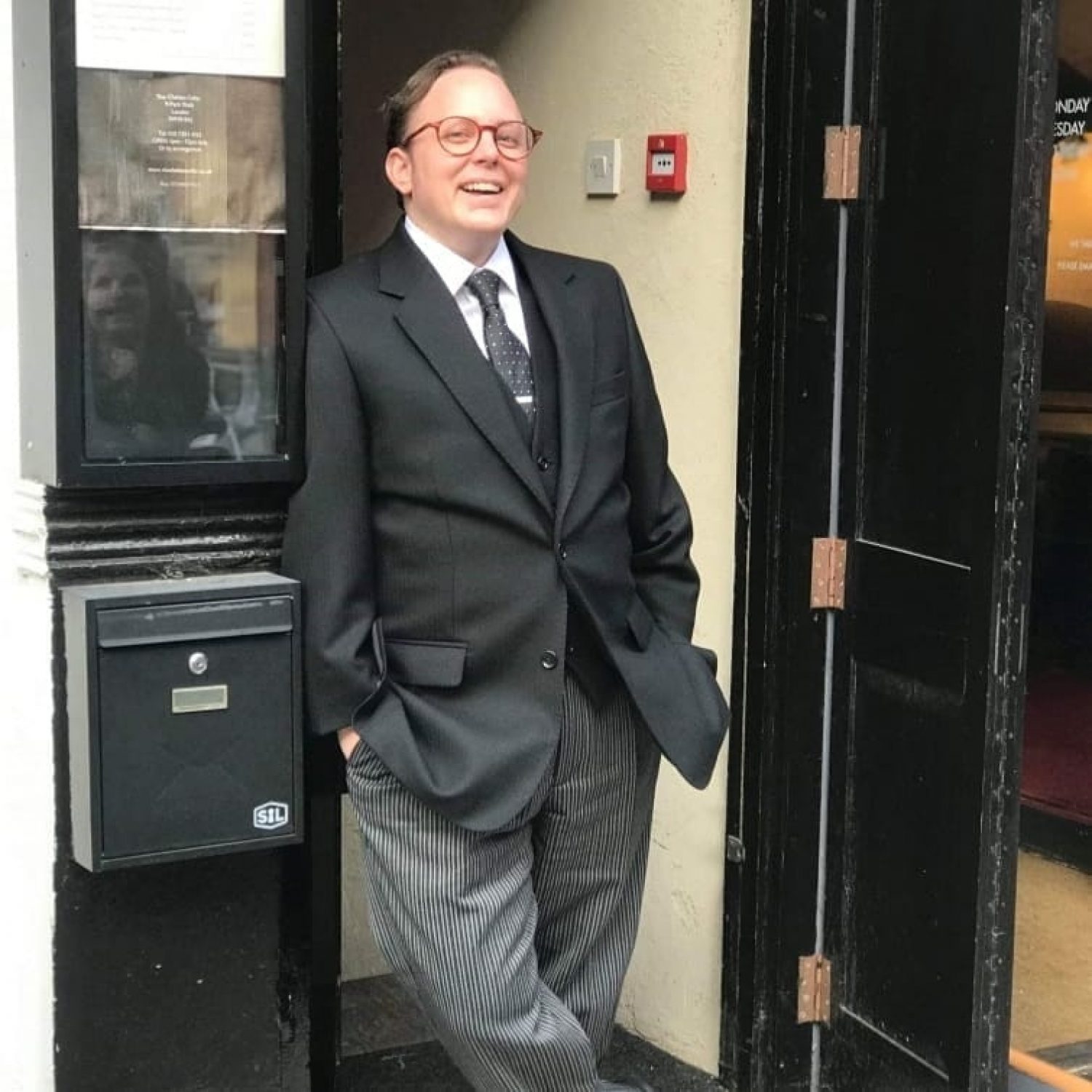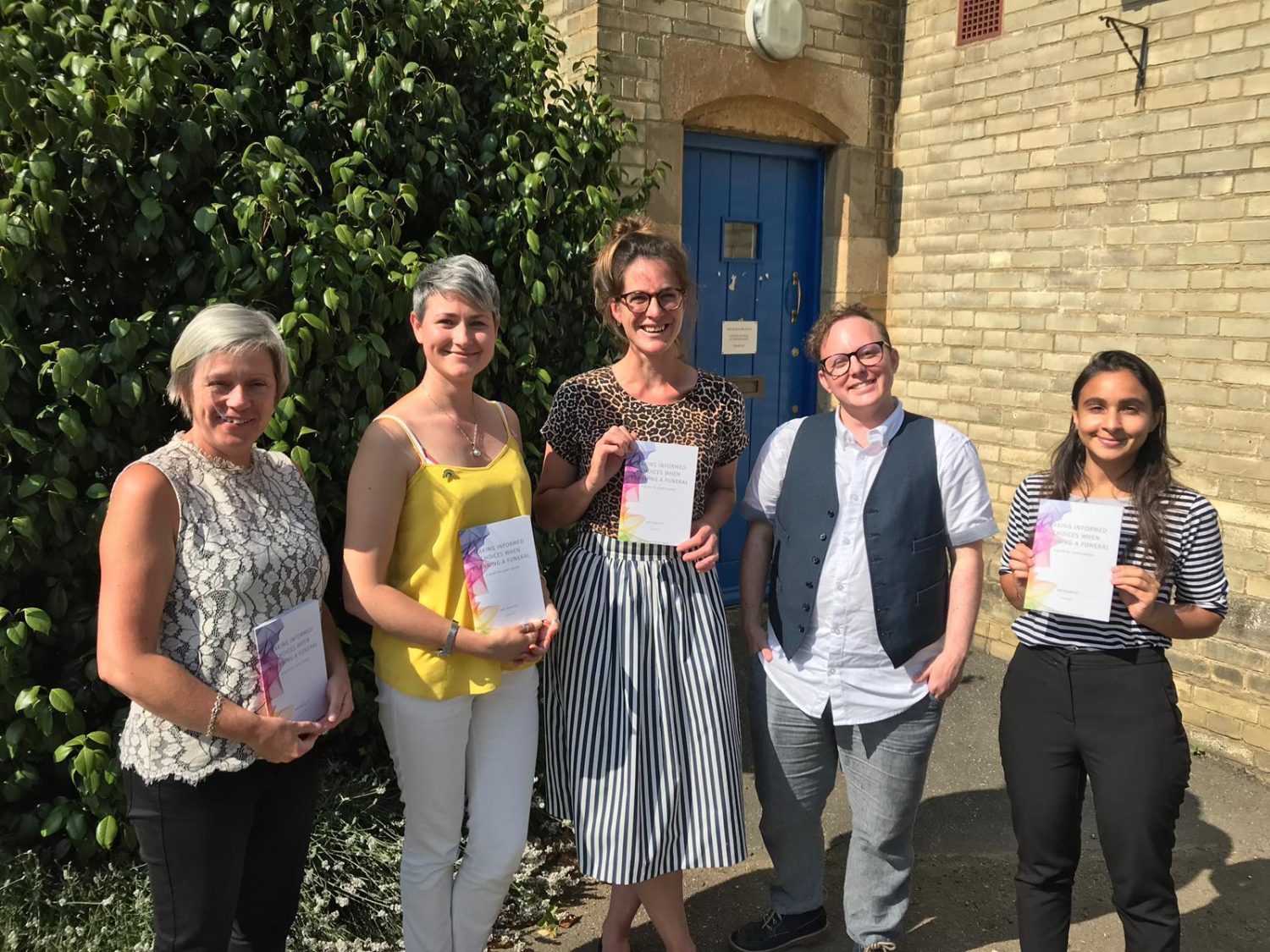Five minute read
Ash Hayhurst is a funeral professional, trans activist and author of the brilliant Queer Funeral Guide. He explains what you need to know about trans funerals and why the funeral sector needs to step up.
How did you get started in the funeral sector?
I had quite a long period of time off work due to unstable housing and a mental health condition. When I was going back, I thought about what I really wanted to do and found work experience as a funeral arranger — I just absolutely loved it.
I’d had the idea in the back of my head for years and never pursued it. Because of my history of mental health, I worried people might assume I was obsessed with death. But being able to be there for somebody when they need you is something that I really value. So when I had the opportunity to work in funerals, I thought what a great chance to see if I have what it takes.
Do you think that the funeral sector is good at being responsive to the needs of the trans community?
No, but I don't think it's because people don't want to be responsive. There's a lack of information in general about trans and gender nonconforming people, unless you know where to look for it.
Funeral professionals could do with a lot more diversity and inclusion training, not just for trans or LGBTQIA+ people, but for everyone. I don't think people don't want to do the work, I think they just don't have the opportunities to learn.
What are some specific areas where you think the funeral sector could improve when it comes to helping the trans community?
Using inclusive language is so important, and not making any assumptions about people. Especially on the phone — just because someone has a deep voice does not mean they are male, for example.
I also think funeral professionals need to learn more about what life is like for trans and gender nonconforming people.
The admin side of being trans is an absolute nightmare. When you transition, you have to do things like get your NHS records changed and change your name. At the point where a trans person dies, they may or may not have been through that process.
If they've already updated their medical records or have a Gender Recognition Certificate, then registering the death is a lot more straightforward — because everything on the official records is in their current name and gender. But transitioning looks different for everyone, so depending on which steps they've taken, it might make registering a death more complex.
A lot of people don't know that you can register somebody's death in the name that they're using, even if they haven't officially changed their passport or got a Gender Recognition Certificate. If funeral directors knew things like that they would be able to support the families of trans people, and also advocate for them after they've died.
If you are trans and you're beginning to think about planning your own funeral, what are some things to try and keep in mind, especially if you have concerns about family members not respecting your gender after you've died?
I did a video about this with the activists Fox and Owl from My Genderation. In the video, I talk about having an idea of what you might want and writing that down.
It doesn't even have to be a legally binding document, but it’s helpful to have something that literally says, ‘when I die, I want my death to be registered in this name, and I want to be known as this name and this gender throughout the service.’ Make sure somebody that you trust has the document or knows where it is.
If you have concerns about your family not validating your identity when you die you could seek out the help of a solicitor and write a will.
The law is such a grey area that if a person's family went to a funeral director and didn't ever mention that they were trans, they could potentially get away with not validating their identity — which is something that desperately needs to change.
This is every trans person's worst fear. Imagine being buried with a name and gender you don't identify with, after fighting so hard to be seen as yourself while you're alive.
But it helps if you've got a will and if you assign somebody that you trust as the executor. You can also make a specific person your next of kin. That's a way to double-lock the security of your plans being respected.
Find out about Poppy's My Funeral Wishes consultations.
Are concerns about your gender being respected after death a major source of anxiety in the trans community?
Yes, but it's not talked about, really. I think part of the reason is because it's difficult being trans. A lot of your emotional energy is taken up with having your gender identity respected when you're alive. Many of us experience mental health problems and sadly suicide is a concern.
Talking about funeral plans is already a bit of a taboo for most people. But if you're trans and you suddenly start saying, 'when I die, I want this,' people are going to be like, ‘are you okay?’ So there’s hesitancy in the community when it comes to talking about funerals.
If you’re planning a funeral for a trans person, what should you keep in mind when you’re looking for a funeral director who will do a good job?
Having an open conversation with someone is the best way forward. When you make that initial phone call, ask questions like, ‘have you ever done a funeral for a trans person?’
If they say no, that doesn't necessarily mean that they won't do a good job, but you'll get a feel for whether they’re willing to be guided by you.
The main thing that's important in my work is creating a space where people can bring their authentic selves.
Traditional funeral directors can shy away from honouring Pride celebrations or the Transgender Day of Remembrance because they think that it might put off future clients. But it’s so important that people are able to be themselves and funeral directors have really got to step up.
Ash Hayhurst spoke at Ceremony Matters' 2020 super conference on diversity and inclusion for funeral professionals. His talk can be accessed retroactively, more information here.
Read out about LGBTQ+ death cafes and don't miss our guide to trans and LGBTQ+ funeral resources.
To stay in touch with all the latest news and updates from Poppy's by email, sign up here or contact us if you need help planning a funeral.

